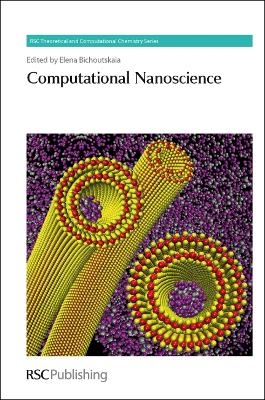
Computational Nanoscience
Royal Society of Chemistry (Verlag)
978-1-84973-133-1 (ISBN)
Nanoscience is one of the most exciting areas of modern physical science as it encompasses a range of techniques rather than a single discipline. It stretches across the whole spectrum of science including: medicine and health, physics, engineering and chemistry. Providing a deep understanding of the behaviour of matter at the scale of individual atoms and molecules, it provides a crucial step towards future applications of nanotechnology. The remarkable improvements in both theoretical methods and computational techniques make it possible for modern computational nanoscience to achieve a new level of chemical accuracy. It is now a discipline capable of leading and guiding experimental efforts rather than just following others. Computational Nanoscience addresses modern challenges in computational science, within the context of the rapidly evolving field of nanotechnology. It satisfies the need for a comprehensive, yet concise and up-to-date, survey of new developments and applications presented by the world's leading academics. It documents major, recent advances in scientific computation, mathematical models and theory development that specifically target the applications in nanotechnology. Suitable for theoreticians, researchers and students, the book shows readers what computational nanoscience can achieve, and how it may be applied in their own work. The twelve chapters cover topics including the concepts behind recent breakthroughs, the development of cutting edge simulation tools, and the variety of new applications.
Elena Bichoutskaia is based in the Department of Chemistry at the University of Nottingham. Prior to this she worked in the Departments of Chemistry at the Universities of Cambridge and Sussex and held a Royal Society/NATO Fellowship at The Queen's University of Belfast. She has contributed to 35 academic papers and is the recipient of eight academic awards. Dr Bichoutskaia has also been invited to speak at numerous seminars, symposia and conferences. She has extensive university teaching experience and was involved in the development of the new Natural Sciences (BSc Honours and MSci Honours) degree courses at the University of Nottingham.
Algorithms for Predicting the Physical Properties of Nanocrystals and Large Clusters;
Rational Design of Mixed Nanoclusters: Metal Shells Supported and Shaped by Molecular Cores;
Self-assembly of Nanoclusters: an Energy Landscape Perspective;
Phase Transition under Confinement;
Simulating Thermo-Mechanical Phenomena of Nanoscale Systems;
Computational Electrodynamics Methods;
Large Scale Electronic Transport Calculations;
Theoretical Strategies for Functionalization and Encapsulation of Nanotubes;
Density Functional Calculations of NMR Chemical Shifts in Carbon Nanotubes;
Computational Study of the Formation of Inorganic Nanotubes;
Native and Irradiation-induced Defects in Graphene: What Can we Learn from Atomistic Simulations?;
The Atomic-, Nano-, and Meso-scale Origins of Graphite's Response to Energetic Particles
| Erscheint lt. Verlag | 21.6.2011 |
|---|---|
| Reihe/Serie | Theoretical and Computational Chemistry Series ; Volume 4 |
| Co-Autor | William Challacombe, Jim Chelikowsky |
| Mitarbeit |
Herausgeber (Serie): Jonathan Hirst, Kenneth D Jordan |
| Verlagsort | Cambridge |
| Sprache | englisch |
| Maße | 156 x 234 mm |
| Gewicht | 1757 g |
| Themenwelt | Mathematik / Informatik ► Informatik ► Theorie / Studium |
| Naturwissenschaften ► Chemie ► Physikalische Chemie | |
| Technik | |
| ISBN-10 | 1-84973-133-0 / 1849731330 |
| ISBN-13 | 978-1-84973-133-1 / 9781849731331 |
| Zustand | Neuware |
| Haben Sie eine Frage zum Produkt? |
aus dem Bereich


